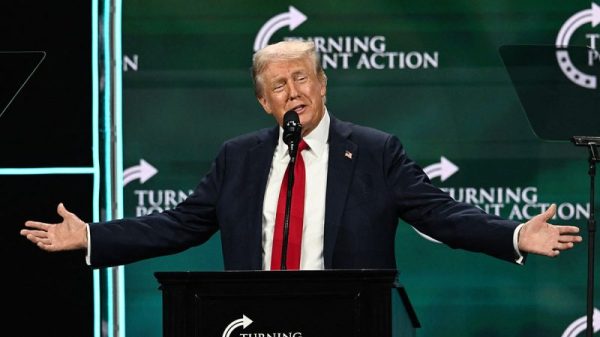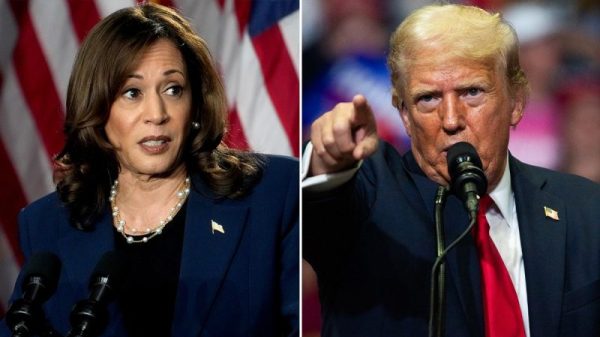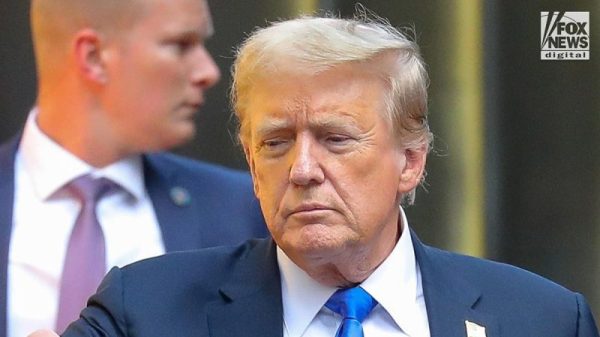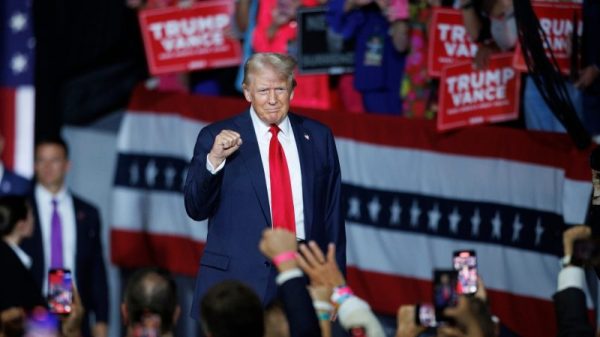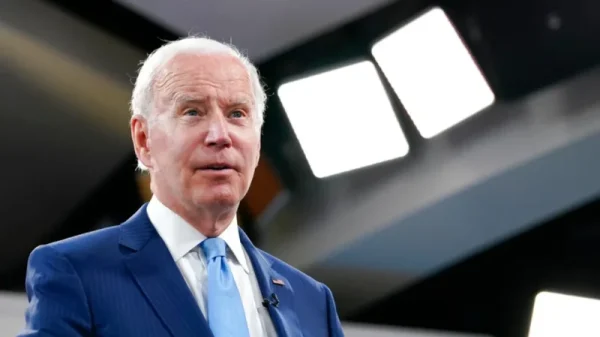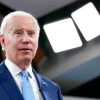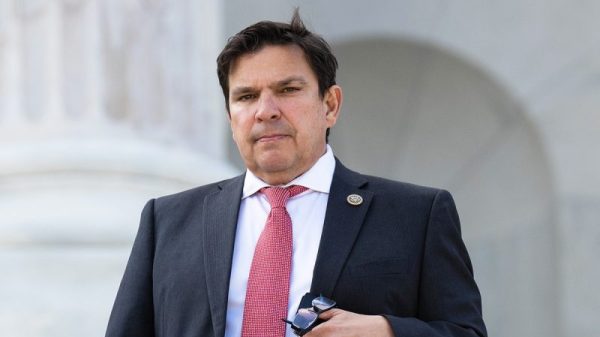House Speaker Kevin McCarthy (R-Calif.) has been struggling for days to figure out how he can get his caucus to approve funding bills that would prevent the government from shutting down at the end of the month. Not seeing much success, he has recently shifted his approach. Instead of allowing the conversation to center on House Republican dissension, he’s pushing the media — and, by extension, the public — to view border security as the sticking point.
Speaking to reporters on Tuesday, he suggested that a funding agreement was up to President Biden.
“The president can really come down to this and make sure the government stays open,” McCarthy told reporters. “All he has to do, take some action on the border to secure it so those border agents don’t come back bloody” — referring to recent photos of an injured agent — “so there’s not trains of people just running in, so the fentanyl doesn’t keep filling our schools and killing our children.”
The White House has pointed out that it had an agreement on funding that it reached with McCarthy earlier this year, a deal that McCarthy has been pushed to jettison. Instead, McCarthy is choosing to cast the Biden administration as negligent, if not dangerous.
“You know what’s so concerning here,” the speaker said at another point on Tuesday, “what do you tell to the families that tomorrow morning are going to wake up and their child’s dead? Because fentanyl came across.”
This has been the Republican approach for more than a year now, using the legitimate danger posed by fentanyl as a cudgel to attack Biden and Democrats. McCarthy has repeatedly argued that Biden has allowed the synthetic opioid to flow into the country unchecked, even elevating debunked claims about the risks of accidental exposure. On more than one occasion, he has compared the toll from fentanyl to a plane crash every day — a rash of deadliness that would spur an immediate response, while (he argues) fentanyl doesn’t.
But fentanyl smuggling is much easier to use as an argument than it is to resolve, as McCarthy’s own endorsed responses to the problem make clear.
McCarthy’s proposed deal with Biden that addresses the border (and fentanyl) centers on H.R. 2, the Secure the Border Act of 2023. When it reached the House floor in May, McCarthy gave a lengthy speech in support of it, including mentions of the dangers posed by fentanyl smuggling. He noted that the drug was the No. 1 killer of people ages 18 to 45, an age range that was the peak of productivity, he argued, and procreation.
“If [H.R. 2] passes,” he argued, “I’m confident that we will stop the flood of fentanyl into our country.”
Most of the bill, though, centers on limiting the ingress of migrants to the United States. It includes a push to expand the border wall long advocated by former president Donald Trump and formalizes policies that Trump endorsed. Its focus is on making it harder for noncitizens to enter the country — which, counterintuitively, is not really the problem.
One of the reasons fentanyl smuggling has surged in recent years is that the drug is small and easy to conceal. Most of the drug stopped by U.S. Customs and Border Protection in recent years has been seized at ports of entry, the legal entry points for those seeking to come into the United States. A large percentage of those attempting to smuggle the drug (it’s not clear precisely what percentage) are U.S. citizens.
NPR reported in August on the effort to bring fentanyl into the United States. It noted that there were known examples of smugglers being stopped after crossing into the country illegally between border checkpoints. But since the drug is so easy to hide — say, in a large shipment carried by a semitruck — it’s much more practical and faster to run larger amounts through existing and often overwhelmed border checkpoints. NPR’s data indicate that 90 percent of smuggled fentanyl is stopped at ports of entry, hidden deep within the nooks and crannies of vehicles.
“We don’t open the trunk, and, hey, there’s a bag of fentanyl powder or pills. You know, we’re looking at tires, gas tanks, roof, floor, seats — anywhere you can imagine,” one border official told NPR. “We have disassembled engines before.”
The Biden administration has pushed for an expansion of the use of scanners that can more effectively and more quickly evaluate whether a vehicle is carrying drugs. In his State of the Union address in February, Biden asked for more such devices. In a budget document sent to McCarthy in August, the White House requested $323 million for scanners to deploy at the border.
H.R. 2 doesn’t focus on such technology. It calls for assessments of technological needs (often focused on combating illegal border crossings) and at one point seeks an investment plan that would, among other things, identify recent developments in the sort of scanning technology that the White House has called for implementing. It also calls for hiring more Border Patrol agents, but ports of entry are staffed by the Office of Field Operations.
A request to McCarthy’s office for more information about the speaker’s policy solutions to the fentanyl crisis was not answered by the time this article was published. He has in the past touted the passage of the HALT Fentanyl Act, which the White House endorsed. It centers on how the drug is classified.
It’s not clear that there is any obvious, immediate solution to the scourge of small, highly addictive pills being stashed in vehicles that drive into the United States. But it is clear that, until such a solution emerges, it’s politically useful to demand that someone else come up with one.







